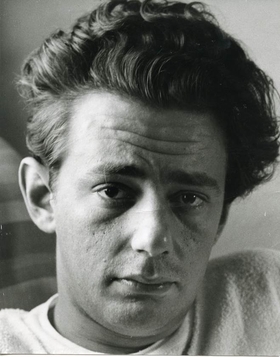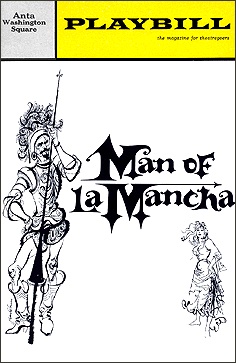
Don Quixote is a Spanish epic novel by Miguel de Cervantes. It was originally published in two parts, in 1605 and 1615. Considered a founding work of Western literature, it is often labelled as the first modern novel and one of the greatest works ever written. Don Quixote is also one of the most-translated books in the world and one of the best-selling novels of all time.

Mordecai Richler was a Canadian writer. His best known works are The Apprenticeship of Duddy Kravitz (1959) and Barney's Version (1997). His 1970 novel St. Urbain's Horseman and 1989 novel Solomon Gursky Was Here were nominated for the Booker Prize. He is also well known for the Jacob Two-Two fantasy series for children. In addition to his fiction, Richler wrote numerous essays about the Jewish community in Canada, and about Canadian and Quebec nationalism. Richler's Oh Canada! Oh Quebec! (1992), a collection of essays about nationalism and anti-Semitism, generated considerable controversy.

Man of La Mancha is a 1965 musical with a book by Dale Wasserman, music by Mitch Leigh, and lyrics by Joe Darion. It is adapted from Wasserman's non-musical 1959 teleplay I, Don Quixote, which was in turn inspired by Miguel de Cervantes and his 17th-century novel Don Quixote. It tells the story of the "mad" knight Don Quixote as a play within a play, performed by Cervantes and his fellow prisoners as he awaits a hearing with the Spanish Inquisition. The work is not and does not pretend to be a faithful rendition of either Cervantes' life or Don Quixote. Wasserman complained repeatedly about people taking the work as a musical version of Don Quixote.

Sancho Panza is a fictional character in the novel Don Quixote written by Spanish author Miguel de Cervantes Saavedra in 1605. Sancho acts as squire to Don Quixote and provides comments throughout the novel, known as sanchismos, that are a combination of broad humour, ironic Spanish proverbs, and earthy wit. "Panza" in Spanish means "belly".

Alonso Fernández de Avellaneda is the pseudonym of a man who wrote a sequel to Cervantes' Don Quixote, before Cervantes finished and published his own second volume.

Cide Hamete Benengeli is a fictional Arab Muslim historian created by Miguel de Cervantes in his novel Don Quixote, who Cervantes says is the true author of most of the work. This is a skilful metafictional literary pirouette that seems to give more credibility to the text, making the reader believe that Don Quixote was a real person and the story is decades old. However, it is obvious to the reader that such a thing is impossible, and that the pretense of Cide Hamete's work is meant as a joke.

Ricote is a fictional character who is referred to in Miguel de Cervantes' novel Don Quixote. He was a wealthy Morisco shopkeeper and old friend of Sancho Panza, who was banned from Spain in 1609 like all Moriscos. The expulsion of the Moriscos was a highly topical issue at the time when Don Quixote was written - occurring in between the publication of the first part (1605) and the second one (1615).
Jacob Two-Two Meets the Hooded Fang may refer to the following:
Jacob Richler is a Canadian newspaper and magazine journalist, and the son of novelist Mordecai Richler and Florence Isabel (Wood). He was the inspiration for his father's Jacob Two-Two trilogy of children's books.

Don Quixote or Don Quixote de la Mancha is the first sound film version in Spanish of the great classic novel by Miguel de Cervantes Saavedra. It was directed and adapted by Rafael Gil and released in 1947. A huge undertaking for Spanish cinema in its day, it was the longest film version of the novel up to that time, and very likely the most faithful, reverently following the book in its dialogue and order of episodes, unlike G.W. Pabst's 1933 version and the later Russian film version, which scrambled up the order of the adventures as many film versions do. Characters such as Cardenio, Dorotea, and Don Fernando, which are usually omitted because their respective subplots have little to do with the main body of the novel, were kept in this film.

Alonso Quijano is the personal name of the famous fictional hidalgo who is better known as Don Quixote, a name he invents after falling into insanity. Alonso Quijano/Don Quixote is the leading character of the 1605/1615 novel Don Quixote de la Mancha, written by Miguel de Cervantes.

Cayetano Hilario Abellán was a Spanish self-taught sculptor who produced sculptures based on different themes. His work is known because of his group of characters from the Miguel de Cervantes' well known novel Don Quixote, among others.

Dušan Petričić is a Serbian illustrator and caricaturist. He has illustrated numerous children's books and his caricatures have appeared in various newspapers and magazines from Politika to The New York Times, The Wall Street Journal and the Toronto Star.
Don Quijote cabalga de nuevo is a 1973 Spanish-Mexican comedy film directed by Roberto Gavaldón, loosely based on Miguel de Cervantes's novel Don Quixote and starring Cantinflas as Sancho Panza, Fernando Fernán Gómez as Don Quixote, and María Fernanda D'Ocón as Dulcinea.

Jacob Two Two Meets The Hooded Fang is a 1999 film adaptation of the novel of the same name by Mordecai Richler.

Jacob Two-Two Meets The Hooded Fang is a 1978 film adaptation of Mordecai Richler's children's novel by the same name. He was a father of five children, with the youngest, Jacob, inspiring his character Jacob Two-Two. The main character is Jacob Two-Two, a young boy who has a habit of repeating himself in order to be heard by those around him.

Don Quixote, Knight Errant is a 2002 Spanish adventure film directed and written by Manuel Gutiérrez Aragón, consisting of an adaptation of the second part of Miguel de Cervantes' Don Quixote. It stars Juan Luis Galiardo and Carlos Iglesias respectively as Don Quixote and Sancho Panza, alongside Santiago Ramos, Fernando Guillén Cuervo, Manuel Manquiña, Kiti Manver, Manuel Alexandre, Juan Diego Botto and Emma Suárez.

El Quijote de Miguel de Cervantes is a Spanish prime-time television series based on the 17th century novel Don Quixote by Miguel de Cervantes. Produced by Emiliano Piedra for Televisión Española, it was directed by Manuel Gutiérrez Aragón, with screenplay by Camilo José Cela and starring Fernando Rey as Don Quixote and Alfredo Landa as Sancho Panza. Its five episodes adapting the first part of the novel were broadcast on La Primera of Televisión Española in 1992.















